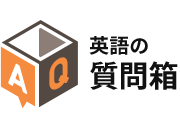回答
It would also be helpful to recognize that the essential difference between (1) Vpast + *should + Vbasic* and (2) Vpast + *should + Vpresent(aux) + Vpast-participle* relates to the respective inter-temporal relation of the two actions which are predicated of the subject.
But, first: you state you chose "should have said" because the verb ("to be worried") first predicated of the subject is in the past tense. You assumed the subsequent verb - sharing the same subject - ought agree in tense with the first verb. This is understandable.
Your assumption, however, mistakes a pragmatic question of temporal relation for a question of grammatical normativity.
BOTH of the alternatives are *grammatically* correct. But temporal context will determine which was the correct alternative in the particular case.
Consider the following inter-temporal relations:
[T = time][Tp = a past point in time][Tpp = a time continuous with or posterior to Tp][p-T = a point in time anterior to Tp][V1 = primary action of the subject][V2 = an action complement of the subject's primary action][¬ = relates to]
{(Tp) V1 ¬ (Tpp) V2} =
(1) "were worried" + "should say"
|{(Tp) V1} ¬ {(p-T) V2}| =
(2) "were worried" + "should have said"
(1) describes the past state of their being worried about what they should say at that *same past time* or in the future (from the perspective of that past time)
(2) describes the past state of their being worried about what they should have said at a time *before* that past state.
(1) and (2) are both referring to the past. But (1) describes the object of worry as a *present* action occuring *at or after that past time*. In contrast, (2) describes the object of worry as a past action which was completed *prior to* the past act of worrying.
Incidentally, note that "should have said" is not a *past tense*. It is present tense with a perfect *aspect*.
これは難しい問題ですね。
実は、「すべきである」「したほうがいい」という義務や当然、助言の意味の”shouldは、間接話法の過去形でもそのまま使われる助動詞なのです。過去形がない助動詞です。
“should have”は意味が全く違い、「すべきだったのに」「した方がよかった」と意味です。すべきだったのにしなかった、までがセットの表現です。
They were worried about what they should say.
(彼らは何を言うべきか心配していた)
They were worried about what they should have said.
(彼らは何を言うべきだったのか心配していた)
他にも、”might”、”could”、”would”、”ought to”も間接話法でも形が変わりません。
以上、ご参考になれば幸いです!
この質問に回答する
問題文と同じ意味のものを選ぶ問題です。
they were worried about what to say.
私はthey were worried about what they should have said.
を選びました。
初めの部分が過去形なので、次の文も過去を表すと考えたためです。
しかし、答えは
They were worried about what they should say.
でした。
どなたか解説して頂ける方いらっしゃいますでしょうか。
よろしくお願い致します。
